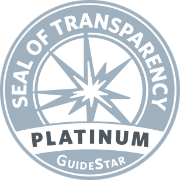Emily Torchiana developed PTSD, depression, and social anxiety from being severely cyberbullied on Facebook in high school. As a result, she attempted suicide at the age of 16 and again two years later at the age of 18.
In her 2017 TED Talk, Emily wore a mask on stage to dramatize the mask she wore to hide her mental illness as a high school student. She explained to the audience that physical masks are easy to spot but invisible masks are just that, invisible.
"Just because you can't see them, doesn't mean they're not there. When you look at someone, you don't realize what they are struggling with.”

When Emily began college, she decided to share her story on campus. She wanted to help reduce the stigma surrounding mental health. This led to opportunities to share her story at other schools and conferences around the country, offering hope for those with mental illness and thoughts of suicide.
In 2018, Emily created “The Invisible Illnesses,” a website and platform that allows people to be heard and encourages them to move past the stigma that mental illness carries. Now called “Lost Got Found,” the website features stories from people with mental illness who are growing and thriving.
The site and its Facebook page received over 325,000 views in the first 5 months. “Prior to hearing you, I had constant suicidal thoughts,” one young person told her. “Then I reached out to my parents – thank you for saving my life.”
In 2017, Emily received the Jacqueline Kennedy Onassis Award for Outstanding Public Service Benefiting Local Communities. She was nominated for this award by WCIV-TV ABC NEWS 4 – Charleston, SC.
In light of Suicide Prevention Awareness Month, we contacted Emily to find out what she’s been up to in recent years. Here is our interview with her, edited for brevity and clarity.
Multiplying Good (MG): How is your mission going? What has shifted since we were last in touch in 2017?
Emily Torchiana (ET): I have been doing well, thank you! But I do attribute my personal wellbeing to the work I did on myself prior to the pandemic. I was already in therapy and had coping skills / positive outlets (support system, yoga, etc.), which helped me immensely once the pandemic began.
And a lot has changed since 2017. Now more than ever, these conversations and checking-in on those you love is so needed.
I would say since 2017, I have personally noticed in my work, which is with teenagers and young adults, the increase of mental health challenges. This could be attributed to a number of reasons - being socially isolated and transitioning to virtual schooling during the pandemic, the rise of social media and comparisons made between themselves online, etc. But, on the flip-side, the positive aspect is that mental health is becoming more normalized and it seems students are becoming more comfortable opening up about their challenges.
MG: How has the pandemic and the resulting widespread trauma impacted your work?
ET: During the peak of the pandemic, individuals who may have never had difficulties previously were now struggling with their mental health. There were increases in domestic violence cases, substance abuse, and symptoms of depression and anxiety. Whether people were personally affected by COVID and lost a loved one or they were dealing with the psychological impact of being disconnected physically from others, it was affecting everyone in some way.
As humans, we are social creatures by nature, so isolation definitely affects us. The impact on my work is the increased need for these conversations- letting people know they are not alone in what they are going through, that there are support and resources available, and that it will get better, even if it does not feel that way at the moment.
MG: Do you think people are more receptive? Empathetic? Vigilant around the mental health of their loved ones?
ET: I do believe that overall people have become more receptive and empathetic to mental health conversations; I notice this when I go into schools and speak on these topics. The last few years have been emotionally and mentally exhausting for everyone - between the pandemic, to the political divide in the country, the list goes on. We have gone through widespread trauma and it's something every person can relate to, which can be healing to talk about for individuals. It can help us become more empathetic and receptive to these topics.
MG: How have you grown in your role as an educator who focuses on mental illness and suicide prevention during this chaotic time?
ET: I am now in graduate school at Pepperdine University, pursuing a degree in Clinical Psychology with an emphasis in marriage and family counseling. I would say that I have grown as an educator only through my own learning and research.
When I began my nonprofit and sharing my story, I was only able to speak from personal experience on these topics. Over the last few years, I have been able to learn so much more about these topics and further my knowledge in different areas of mental health, which has then helped me educate in schools. As an example, I took a class on multicultural psychology, which shed light on the trauma different communities have experienced and the impact it has on each generation. This has helped me when educating different communities to be aware of not only their individual trauma they may have experienced, but the generational trauma as well.
I don't think I will ever stop learning about these topics, as there's so much to uncover, but I can only hope it'll continue to help in my teaching students on these topics and assist them to get help. I also think, in general, when I go speak at a school, I want each individual to feel "seen" and let them know this world would not be the same if they were not here.
MG: Have you seen the stigma around mental illness shift due to the pandemic?
ET: Yes, I have. My mission has always been to reduce the stigma of mental health through letting others know they are not alone; I do believe this stigma has reduced significantly over the last 5 years and specifically throughout the pandemic- both celebrities and non-celebrities are now opening up about their mental health challenges and it's becoming more widely accepted to be in therapy. And, virtual therapy can make it more accessible for individuals to seek help, who may have not previously been able to travel for therapy.
You can follow Emily’s work on her website https://www.emilytorchiana.com/

